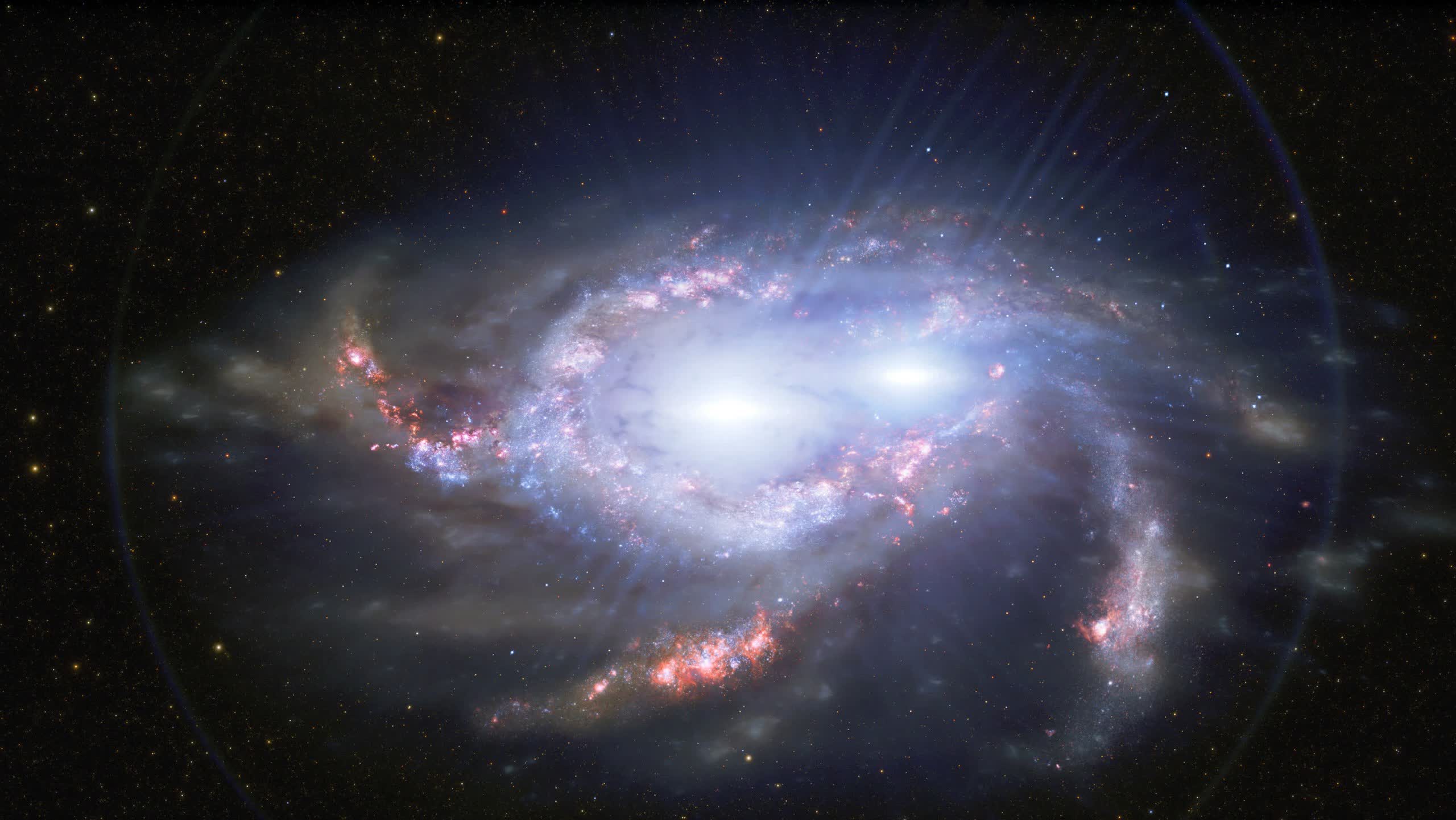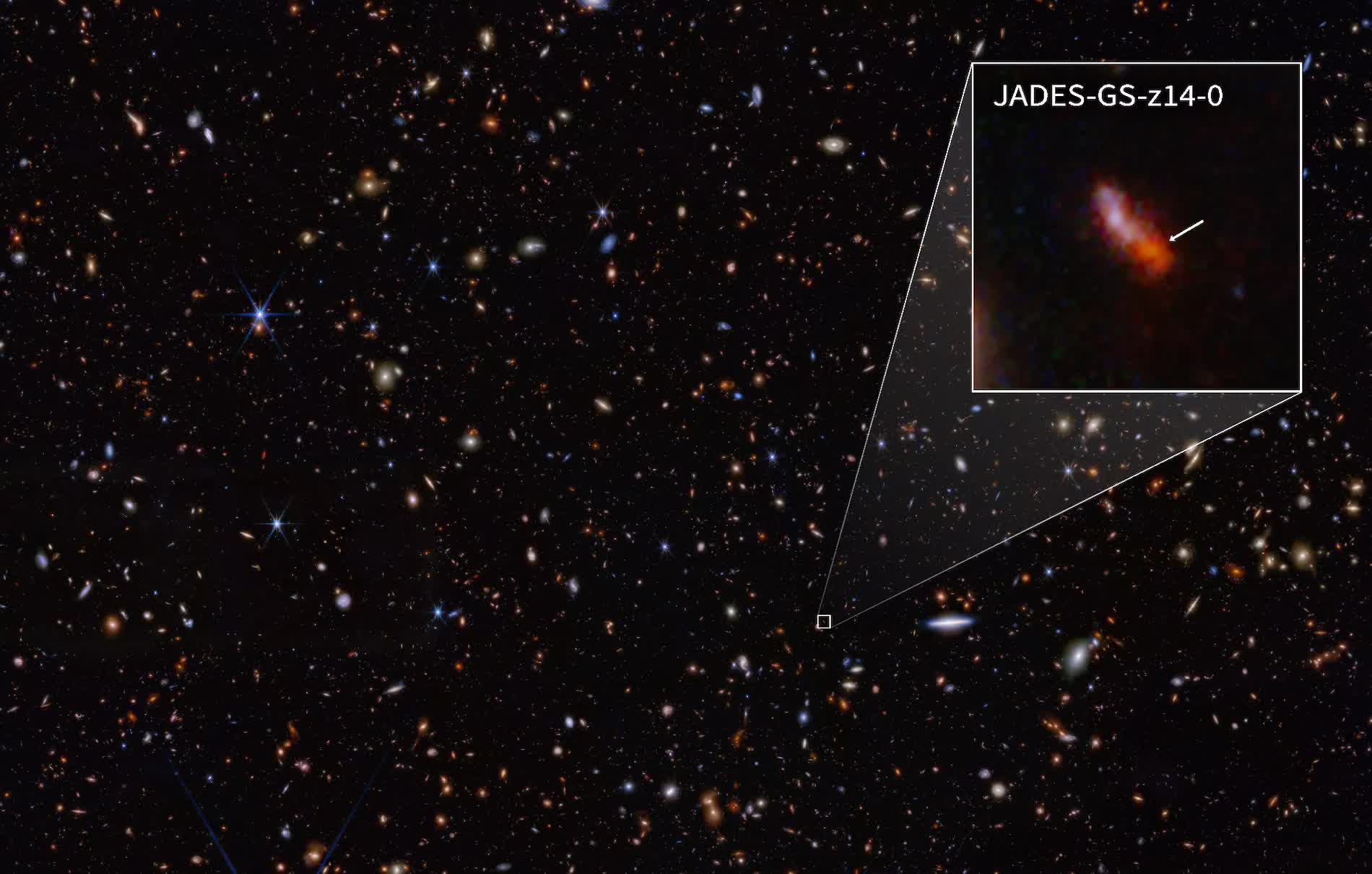A real head-scratcher: The James Webb Space Telescope detected the earliest galaxy ever observed in the universe, but it presents researchers with a mystery. Scientists can't figure out how it managed to churn out stars merely a few hundred million years after the Big Bang because it doesn't conform to current galaxy formation models.

Dubbed JADES-GS-z14-0, the galaxy was first spotted by Webb's Near InfraRed Spectrograph (NIRSpec) earlier this year. It formed around 300 million years after the Big Bang, estimated to be 13.8 billion years ago.
What makes this detection wild is that the galaxy contains a gigantic halo of freshly minted stars surrounding its core that have been furiously bursting into being for at least 90 million years before the point of observation. Somehow, just a couple hundred million years after the universe inflated into existence, this thing was already cranking out stars. That's pretty bizarre.
Current theories suggest galaxies in the early cosmos were supposed to start small and grow gradually over billions of years through galactic mergers and gas and dark matter accretion. However, JADES-GS-z14-0 tosses these theories into the bin. Scientists say it's way too massive and active for its age.

"The discovery by JWST of an abundance of luminous galaxies in the very early Universe suggests that galaxies developed rapidly, in apparent tension with many standard models," the researchers wrote in a study published July 29 in Nature. "Galaxy formation models will need to address the existence of such large and luminous galaxies so early in cosmic history."
Additionally, the galaxy contains astounding amounts of dust and heavy elements like oxygen, making it even more strange. All that enriched material implies JADES-GS-z14-0 had already vigorously forged generations of stars long before its perceived 290-million-year age.
It's not the first time the JWST has uncovered shockingly mature galaxies from the Cosmic Dawn. Earlier findings in 2023 revealed half a dozen stupendously massive galaxies formed 500 to 700 million years after the Big Bang, defying 99 percent of theoretical predictions. Between those and this new ultra-ancient galaxy, it's becoming clear our picture of the early universe contains some serious blind spots.
As for what kicks off these 'premature' galactic growth spurts, the researchers don't have a definitive answer. They're tossing around potential explanations like an earlier birth of supermassive black holes, feedback effects from frequent supernovae, or possibly even the influence of dark energy. They just don't know.
That said, it's growing more apparent that the universe is playing by a set of rules we have yet to grasp fully. However, with observatories like the JWST Advanced Deep Extragalactic Survey on the case, perhaps these mysteries won't remain unsolved for much longer.
Image credit: NOIRLab
JWST uncovers ancient galaxy, challenging cosmic theories and baffling scientists